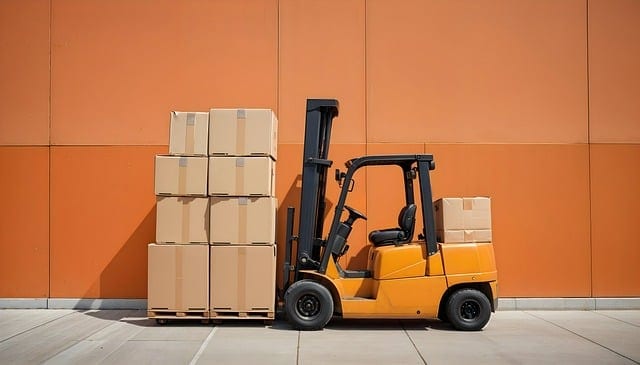As the world increasingly grapples with environmental concerns, industries are turning to greener, more sustainable solutions to meet their logistical needs. Among the technologies undergoing significant transformation, electric all-terrain forklifts stand out for their potential to revolutionize the industrial landscape. These machines, which combine performance, energy efficiency, and environmental respect, are becoming an increasingly popular alternative for companies seeking to reduce their carbon footprint.
Addressing modern logistical challenges
A number of companies specialize in all-terrain electric forklifts, including Vallee – Rough Terrain Forklift Manufacturer in Canada. This comes as no surprise, as these machines are vital in industries that require the efficient handling of heavy loads across varied and often challenging environments. Whether on construction sites, farms, port areas, or outdoor locations, these forklifts must navigate rough, muddy, or uneven terrains. Traditionally powered by internal combustion engines, these vehicles were often criticized for their fuel consumption and polluting emissions.
However, with rising environmental awareness, this trend has reversed. More and more companies are adopting electric models that maintain high performance while adhering to environmental standards.
A major environmental asset
One of the key advantages of electric all-terrain forklifts is their significantly reduced carbon footprint. Electricity, especially when sourced from renewable energy, is far cleaner than internal combustion engines. Moreover, greenhouse gas emissions are virtually nonexistent when these machines run on batteries, unlike their thermal counterparts, which emit CO2, carbon monoxide, and nitrogen oxides.
This shift to electric power also allows companies to more easily comply with increasingly stringent environmental regulations, including air quality standards in indoor spaces or urban areas. Additionally, the batteries of electric all-terrain forklifts can be charged from green energy sources, making the entire process even more environmentally friendly.
Lower operating costs
Beyond their environmental benefits, electric all-terrain forklifts also offer undeniable economic advantages. Maintenance costs for internal combustion engines are generally higher than for electric motors, due to the complexity of the combustion system, the need to replace parts like oil filters and spark plugs, and the maintenance required for the engine itself.
In contrast, electric motors are far simpler to maintain, with fewer moving parts and a longer lifespan. Although batteries need to be replaced after several years, this cost is significantly lower than the frequent repairs and maintenance associated with thermal engines.
Moreover, the battery autonomy, which has improved significantly in recent years, allows for prolonged use without the need for frequent recharging. This advancement helps increase productivity while reducing equipment downtime.
Adaptability and performance on all types of terrain
Despite the environmental and economic benefits, a significant challenge for electric all-terrain forklifts remains their ability to perform on difficult terrains. However, thanks to technological advancements, these machines are now capable of competing with their thermal counterparts. Equipped with powerful motors and optimized transmission systems, modern electric models can easily tackle steep slopes, navigate muddy surfaces, and lift heavy loads without compromising performance.
The key to this performance lies in the electric motors themselves, which deliver instantaneous torque. Unlike thermal engines that require ramp-up time to reach full power, electric motors provide immediate power, ensuring smoother operation and more precise load handling, even in challenging conditions.
An investment in the future
While the initial cost of electric all-terrain forklifts may be higher than thermal models, this investment quickly pays off through savings on maintenance and fuel costs. Additionally, with increasing tax incentives and subsidies from governments encouraging energy transitions, many companies can reduce the acquisition costs of these machines.
The future of industry is undoubtedly leaning toward greener mobility, and electric all-terrain forklifts are a prime example. By combining exceptional performance, lower operating costs, and enhanced environmental respect, these machines are emerging as an ideal solution for industries seeking sustainability. They offer companies the opportunity to balance technological innovation with ecological responsibility while meeting their logistical demands.
In conclusion, electric all-terrain forklifts are not just a passing trend: they represent a strategic turning point for industries striving to adapt to modern sustainability requirements. With their ability to combine performance, energy savings, and environmental responsibility, these machines are poised to play an increasingly important role in the years ahead, contributing to a greener and more responsible industrial world.
Did you like it? 4.3/5 (24)








